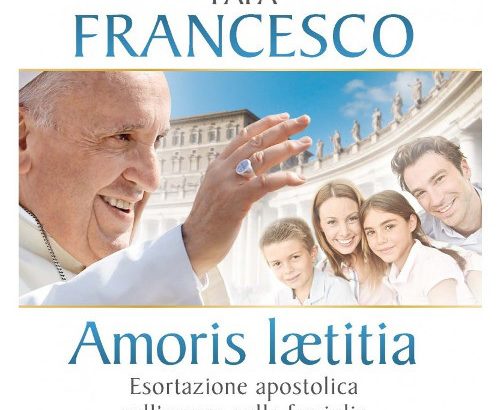“If the Church cannot give life to families, she herself has no future”
Fr Bernard Healy
Much of the commentary about Amoris Laetitia will focus on the care of those in ‘irregular unions’. It seems a shame that the ‘hot button issues’ will take attention away from a vision that could be genuinely revolutionary in how the Church supports all marriages.
In the Irish context, marriage preparation is primarily dealt with by Accord, and agencies offering pre-marriage courses. In my experience, couples are happy with the content of these courses and there is a lot of goodwill amongst the clergy for the work that Accord does.
The agency is also invaluable in the support it offers to couples experiencing difficulties. However, the sixth chapter of the document (‘Some Pastoral Perspectives’) offers a broader vision of how the Church – dioceses and parish communities – can support engaged and married couples. At the moment we treat marriage preparation as something that can be outsourced to the pre-marriage course.
This happens in the months immediately before a wedding, usually when all the ‘important’ details like the hotel, the guest list and so on, have already been decided. Expecting even the best of courses to carry the weight of adequately preparing a couple for a life-long commitment seems too much.
Learning
Pope Francis speaks in terms of remote preparation for marriage – in other words the learning about love and relationships that happens long before young people begin choosing marriage partners. How marriage is understood and dealt with in homes, schools and parishes is increasingly important as society itself drifts away from the traditional understandings.
Amongst other suggestions, he sees a role for ‘missionary families’ helping and supporting other families. He points out the benefits of engaged couples themselves being invited to play a greater part in the parish as they get ready for marriage.
He also asks that married couples be particularly supported in their first years.
As things stand, Irish parishes seem to keep young couples at arm’s length due to a lack of anything to offer them that is suited to their stage of life. Getting to where we can offer these supports to interested young people will involve great energy and creativity in the Irish Church.
The real challenge of Amoris Laetitia is not how we handle the ‘difficult cases’, but whether we can give effective Christian support and formation to enable people to live out the vocation most of them are called to. If the Church cannot give life to families, she herself has no future.
More modest weddings
Pope Francis’ advice to couples that they “have the courage to be different” in “opting for a more modest and simple celebration of marriage” (AL212) is one that every priest will empathise with.
I don’t mean that there is anything wrong with a large wedding involving family and friends. The Wedding Feast at Cana does not seem to have been an especially restrained affair!
However, we must be honest in pointing out to the culture at large that the pressures of the ‘big day’ can mean that ‘preparation for marriage’ suffers at the hands of ‘getting ready for the wedding’.
Despite the publicity surrounding ‘recession weddings’ in various parishes in recent years, there is still the expectation that that a ‘Church wedding’ demands all kinds of extras.
In truth, all that is needed is an adequately-prepared couple, their witnesses and a priest or deacon acting on behalf of the Church. Everything else is optional!
Amoris Laetitia and priestly formation
One mightn’t expect a document on the family to have much to do with seminary formation, but it strikes me there are huge implications for how we train and support our clergy. Pope Francis asks that “Seminarians should receive a more extensive interdisciplinary and not merely doctrinal formation in the areas of engagement and marriage” (AL203).
If the work that parishes do with families is going to be changed by this document, priests need to be made ready.
Given the emphasis that the Pope places on discernment and the duties of confessors in Amoris Laetitia, seminary training in moral theology and preparation for confessors will be crucial in implementing his vision.
Ministry
The same is true for priests in ministry. I don’t think this has been a major priority in the ongoing formation of clergy in Irish dioceses. This contrasts with an older custom of deanery and clergy meetings being the occasion of priests honing their theological and pastoral approach to ‘difficult cases’.
Perhaps this is a case where past wisdom needs to be re-appropriated.



